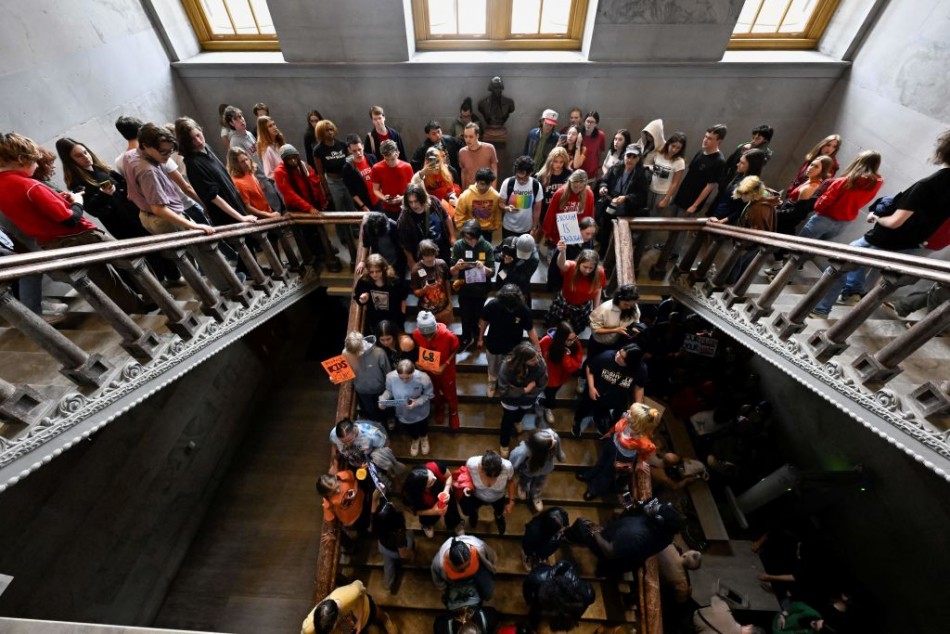Idaho Transgender Restroom Law Takes Effect Amidst Controversy, Court Challenges

Amidst a whirlwind of controversy and legal challenges, a new Idaho transgender restroom law now limits the choices of transgender students in schools.
This pivotal decision, overseen by Chief U.S. District Judge David Nye, facilitates the enforcement of the law amidst an ongoing, heated lawsuit.
As school restroom policies become a central topic of discussion, the Idaho community and stakeholders nationwide await the final outcome, with many pondering the broader implications of such Idaho LGBTQ+ legislation on students' everyday lives.
Idaho's Transgender Restroom Law and What It Entails
Judge David Nye recently denied a plaintiff's request, which aimed to halt the enforcement of the transgender restroom law until the lawsuit reached its conclusion.
This decision comes after an earlier event in August, when the implementation of the law was momentarily paused in anticipation of this ruling.
Now, from the date of Nye's verdict, Idaho's transgender restroom law will become effective within a 21-day span.
Central to this Idaho law is its directive that prohibits transgender students from utilizing public school restrooms and locker rooms that match their gender identity.
Furthermore, it provides rights to other students, enabling them to bring forth legal complaints against their school if they find a student in a restroom that is not in alignment with their sex determined at birth.
Delving into the reasoning behind his decision, Judge Nye expressed that the transgender restroom law remains significantly relevant to safeguarding the privacy and safety of students while they access school restrooms or changing rooms.
The emphasis is clear: the court's role is to interpret the Idaho LGBTQ+ legislation without swaying into the domain of policy-making.
Backlash Against The Recent Ruling
Lambda Legal, an organization known for its staunch support of LGBTQ+ rights, initiated a lawsuit against Idaho.
Representing an Idaho transgender student, their stance is that Senate Bill 1100, known in popular discourse as the transgender restroom law, violates constitutional rights by introducing discrimination based on gender identity.
However, the debate doesn't end there. Idaho's Attorney General, Raúl Labrador, views the recent ruling as a significant triumph.
Highlighting the longstanding societal tradition of separate facilities, Labrador stressed the importance of ensuring the safety and privacy of young students within Idaho's school system.
Read Also: Arizona Father Stages Bold Dress-Down Protest at School Board Meeting Over New Dress Code
The Wider Picture
This controversial law fits into a broader framework of school restroom policies and the larger discussions about gender rights across the United States.
Individual school districts in Idaho have been regulating which bathrooms transgender students can use.
Judge Nye, in an earlier decision, pointed out that approximately one-fourth of schools in Idaho currently allow transgender students to access facilities that are congruent with their gender identity. But the transgender restroom law is not an isolated move.
Many GOP-controlled states are echoing similar sentiments through their legislation, reflecting a broader shift in school restroom policies.
A notable mention is an August event when an Idaho law targeting transgender athletes in female sports categories was blocked by a federal appeals court.
In this intricate web of legalities, the core issues remain: the rights of transgender students, the overarching school restroom policy, and the societal implications of Idaho LGBTQ+ legislation.
As this Idaho transgender restroom law takes center stage, it not only sparks debate within the state but also poses questions about the broader landscape of transgender rights in the US.
Related Article: Bracing for a Potential 'Tripledemic': Flu, RSV, COVID-19 Cases on the Rise
© 2024 ParentHerald.com All rights reserved. Do not reproduce without permission.
